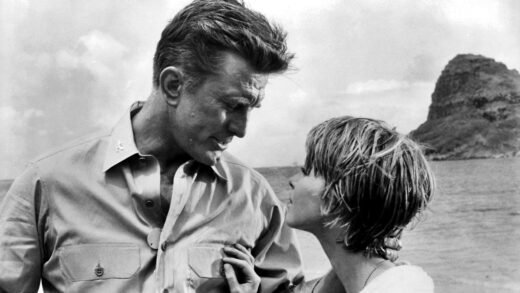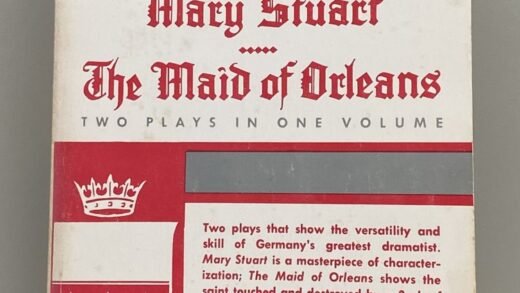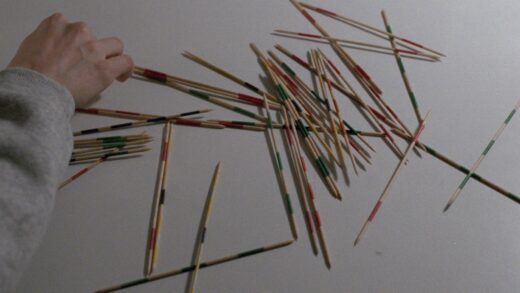Accident was released in England in 1967. Directed by Joseph Losey. Written by Harold Pinter. Stars Dirk Bogarde, Stanley Baker, Michael York, Jacqueline Sassard, Vivien Merchant, and Delphine Seyrig.
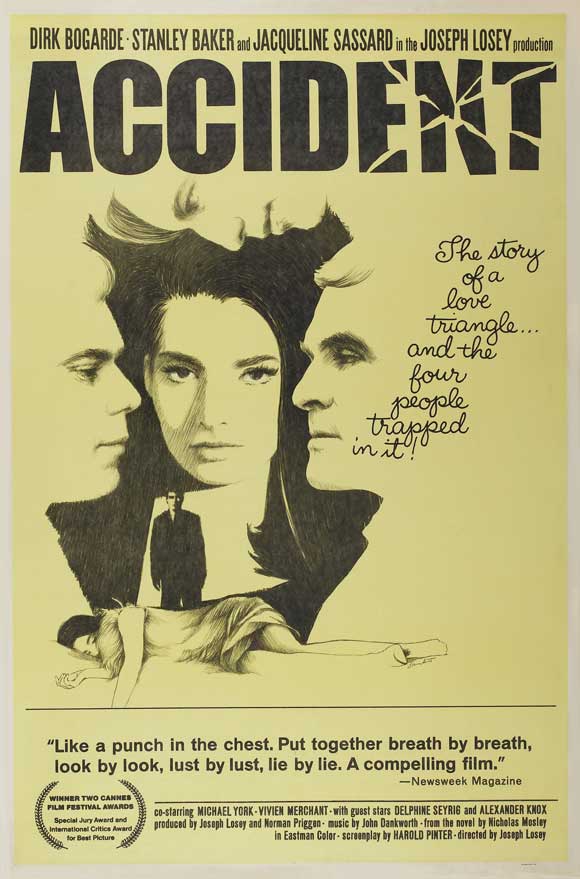
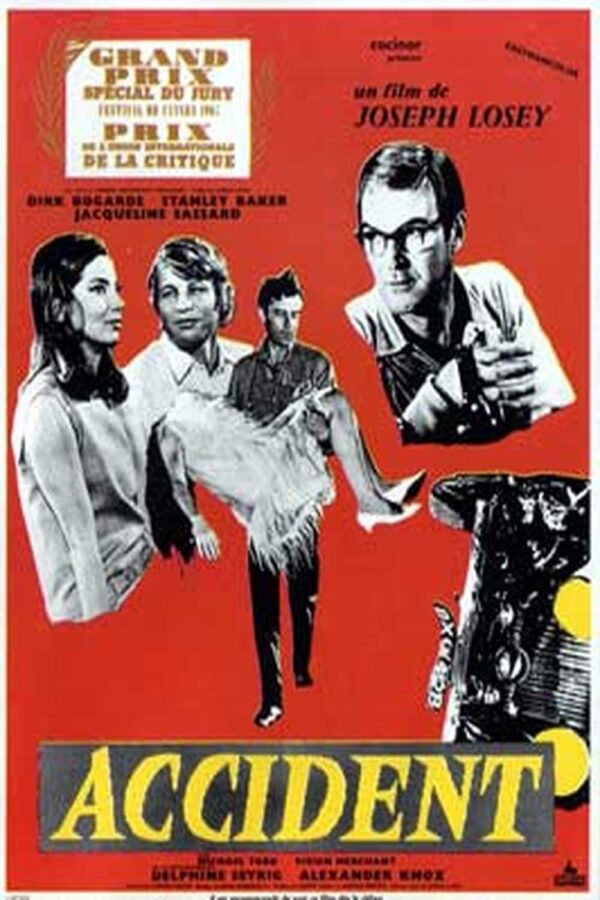
Plot of Accident
Stephen (Dirk Bogarde) is awakened in his home at the sound of an accident in the road. He rushes out and finds Anna (Jacqueline Sassard), an Austrian princess, and William (Michael York), an English son from a wealthy family, in a wrecked car. Both are his students from Oxford and had been en route to see him. William is dead, and Anna is very shaken up. Police arrive and inquire into what happened.
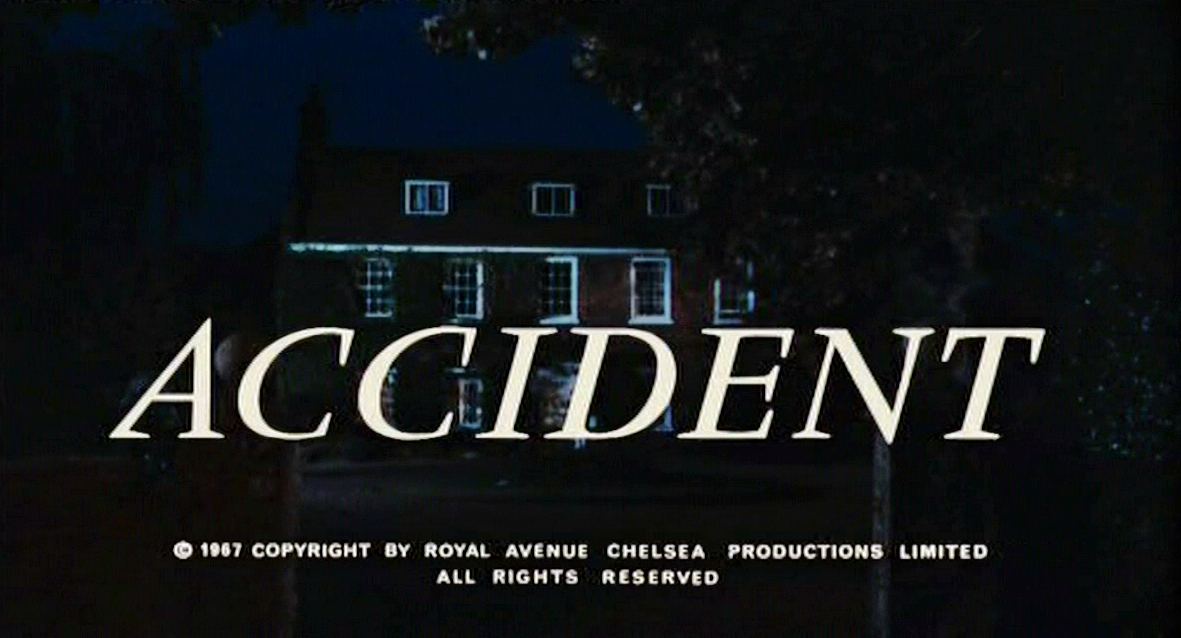
The narrative goes back several weeks prior to the accident, to Stephen’s office where William tells him about Anna and his intention to meet her. Stephen is clearly attracted to Anna, but nothing has happened between them. Yet there are many indications in the narrative that something may have happened or may happen between them. Stephen’s wife (Vivien Merchant) asks if she’s made a pass at him. Out punting with Anna and William one day, Stephen sneaks a look at Anna’s bare legs and midriff. When spending the day with others at Stephen’s home, Anna volunteers to go on a walk with him. At one point their hands are only inches away from each other on a fence, as they pause before returning. That same afternoon at Stephen’s house, his colleague and friend Charley (Stanley Baker) announces that Stephen is having an affair with one of his students. No one seems to take it seriously. That evening at a drunken dinner Stephen and Charley appear to be attempting to impress Anna with their respective popularities.
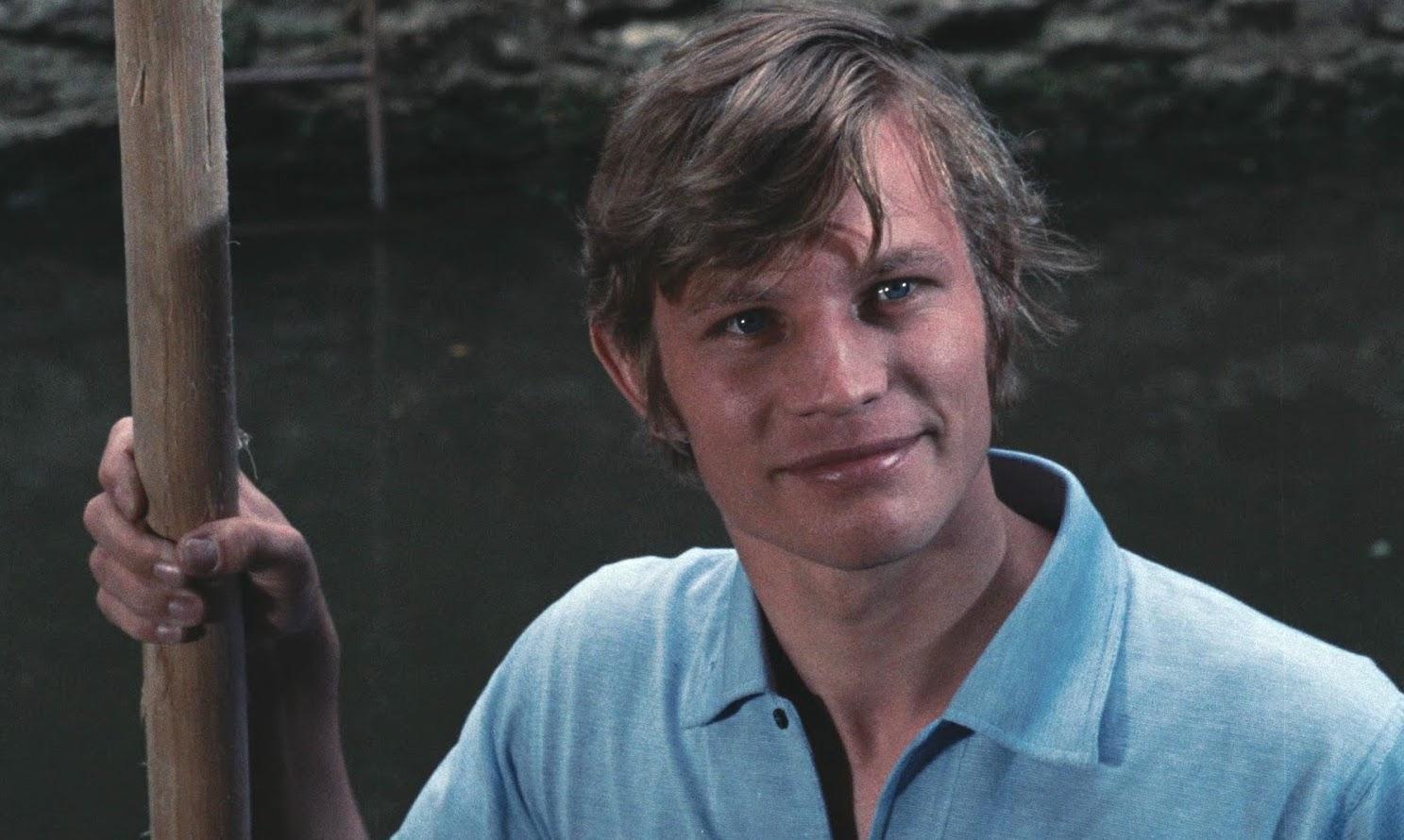
Days later Stephen discovers that Charley had been having an affair with Anna and had left his wife and children. Just after, William tells Stephen that he and Anna are getting married and makes plans to stop at his house that evening. That night the accident occurs.
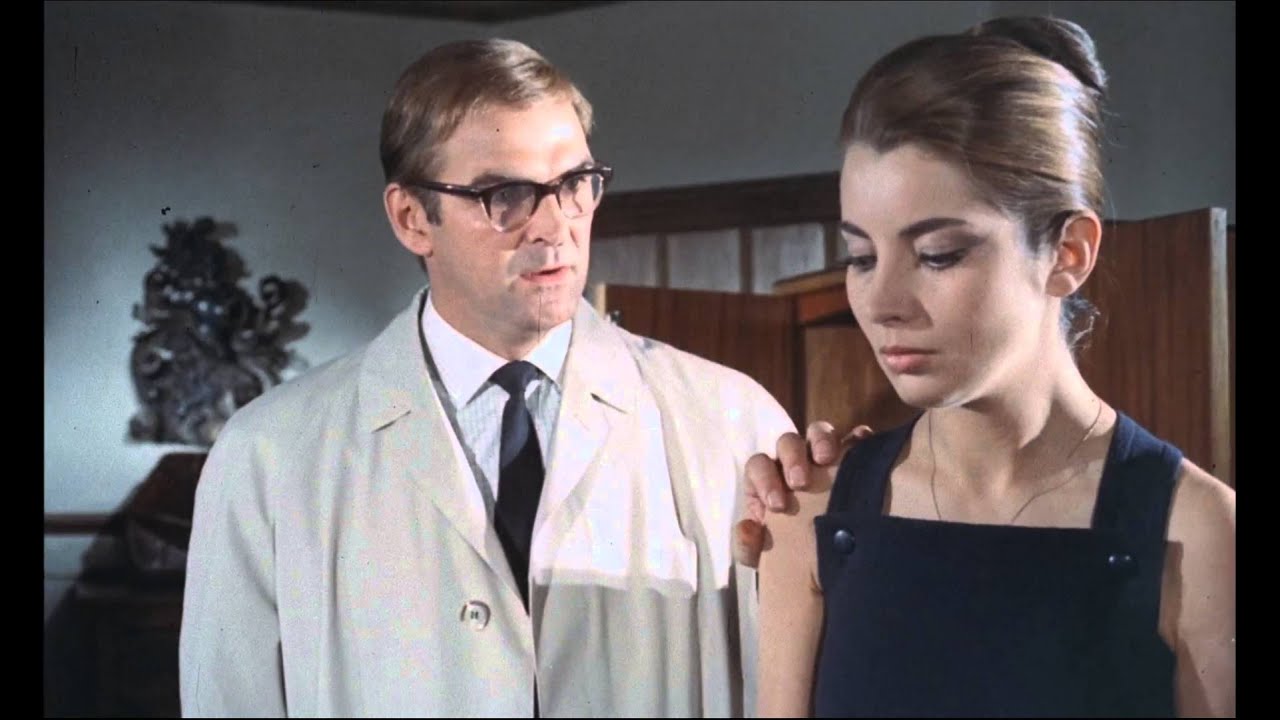
After the police leave, Stephen coerces Anna into sleeping with him. The next day Anna sneaks back into her dormitory with Stephen’s help. Charley meets them there while Anna packs, about to return to Austria. Charley doesn’t understand why Anna is leaving. Anna gets in a taxi.
Judgment
Elliptical, yet that is not to my mind a defect.
A brief but fascinating theoretical detour
An elliptical film would be one that leaves a viewer without certainty in what has happened or what something means. For the longest time I’ve sought some shelter in de facto truths, which it has only recently occurred to me are not for that reason redoubtable positions.
Since around when I started graduate school (late 1990s), I’ve eschewed the intentional fallacy because of the inability of an author to circumscribe all of intentions and meanings going into a work. If an author cannot be responsible for all of those intentions and meanings (because of the unconscious, which I take not merely to be a psychological but also a social phenomena), then interpretation cannot find its end in the mind of the work’s creator. To that position I remain invested (admittedly not a very interesting one).
Yet I find myself caught between a kind of interpretive formalism and historicism. I do think that the work needs to speak for itself and moreover that works are capable of being unzeitgemässig (untimely). Yet I cannot separate a work from his historical period, from which it is responding in one sense or another. The work arose at a certain historical moment, even if what it thinks contradicts its contemporary moment.
Here I’m taking a similar position: no film is completely circumscribed in its meaning or interpretation, therefore it is not a virtue to be determined or complete (the opposite of elliptical). Yet there is and must be some limit to this—a degree of obliqueness (is this a synonym of elliptical?) beyond which a work cannot be appreciated.
Judgment qualified
What is elliptical within this film enhances rather than detracts from its effect. It is valuable not to know if Stephen and Anna have slept together before the ending, so as to heighten the emotional tension between Stephen and his colleague, between him and his wife.
The best scene(s)
After contesting Charley’s importance because of his television show (something clearly intimidating him) at dinner with his guests and wife, Stephen confesses that he has an appointment with Charley’s television producer to see about appearing on the show as a guest.
At the meeting, Stephen is mostly moved from room to room with little regard, culminating in finally encountering the producer (played by Harold Pinter), a former student most interested in Stephen only insofar as he was linked to Francesca. Stephen repeatedly says that he is married now, indicating that what was with Francesca is over. The producer keeps talking and then abruptly leaves without having arranged any television appearance, saying in parting for Stephen to send his regards to Francesca.
Since he’s in London, Stephen hesitantly calls Francesca (Delphine Seyrig).
He goes to her apartment where they talk and she gets changed, they go to dinner, and finally then end up in bed with one another. Throughout their time together, although the viewer sees them talking to each other, none of the dialogue corresponds to their mouths moving or the place in which they are located. All of the scene is narrated by an exchange in which is expressed the tensions from a previous relationship and whether she is still the object of his desire.
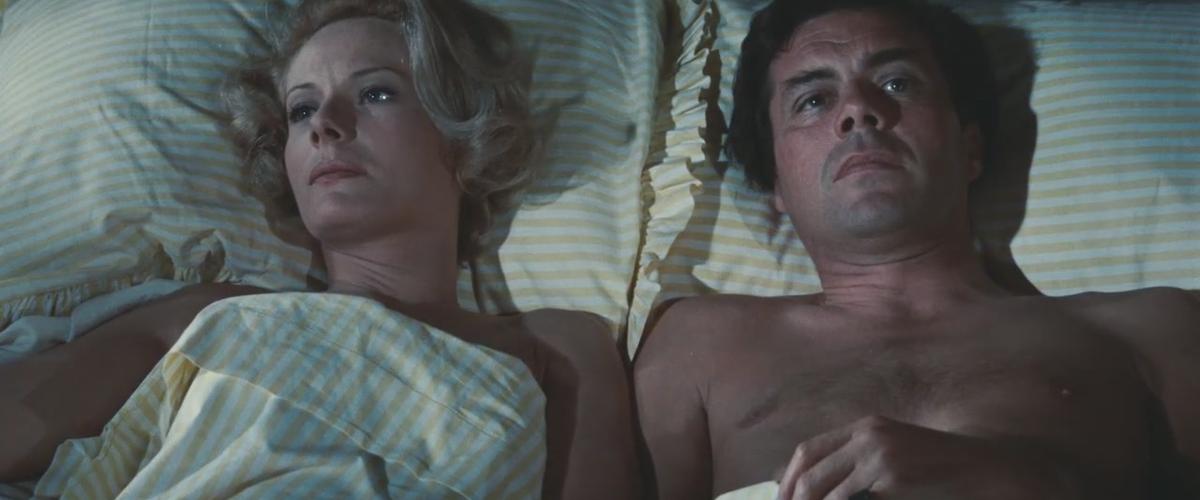
Why I watched this
This film was viewed on the Criterion Channel. I learned of it through a series of films featured because Harold Pinter, the famous Nobel Prize-winning playwright, had written or directed them.
Harold Pinter is someone that I’d known of but had read nothing by. Something I hope to change sometime soon.
I’d also seen, as far of that same series of films, The Go-Between (1971), which I really liked a great deal, and The Servant, which impressed me not a little. The Servant drew the talents of the actor Dirk Bogarde to my attention. In that film, as I’ve written, he plays a manservant/bondsman who slowly becomes the gentleman/master, an example of one part of the master/slave dialectic in Hegel’s Phenomenology of Spirit. I’m now seeking to see more films starring Dirk Bogarde, especially Ill Met by Moonlight (1957), in which he plays the role of Patrick Leigh Fermor, who was involved in the abduction of the Nazi Major General Heinrich Kreipe. Bogarde is a beguiling actor with considerable range, and isn’t range the most important sign of an actor/actress of talent?
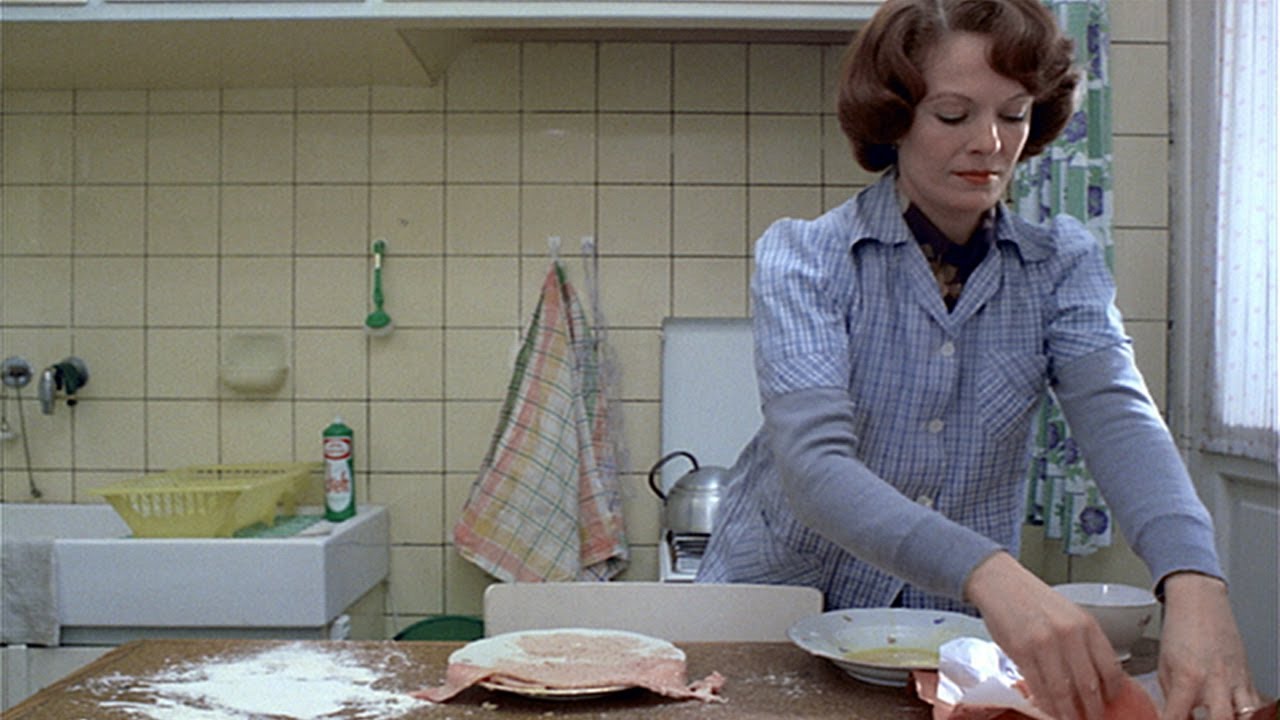
In doing the “research” for this film, I learned that Francesca is played by Delphine Seyrig, who was also the eponymous character of Chantal Akerman’s magisterial Jeanne Dielman, 23 quai du Commerce, 1080 Bruxelles (1975). The latter film I had the opportunity to view at Film Forum back in 2009 or so. It is really a fascinating film, the likes of which intimidate me from writing about. Will it suffice to say it is a really important film and you should watch it (and put away your fucking phone already?!)? It is truly an experience not to be mediated.
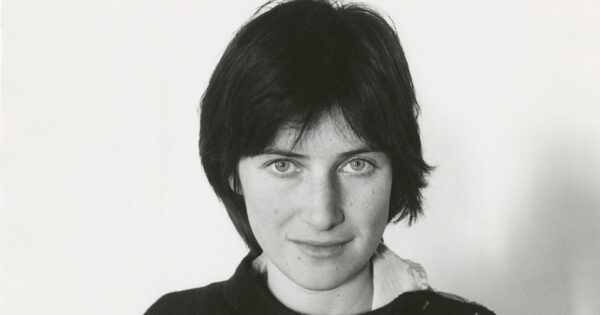
Care to read what else I’ve written on film?

